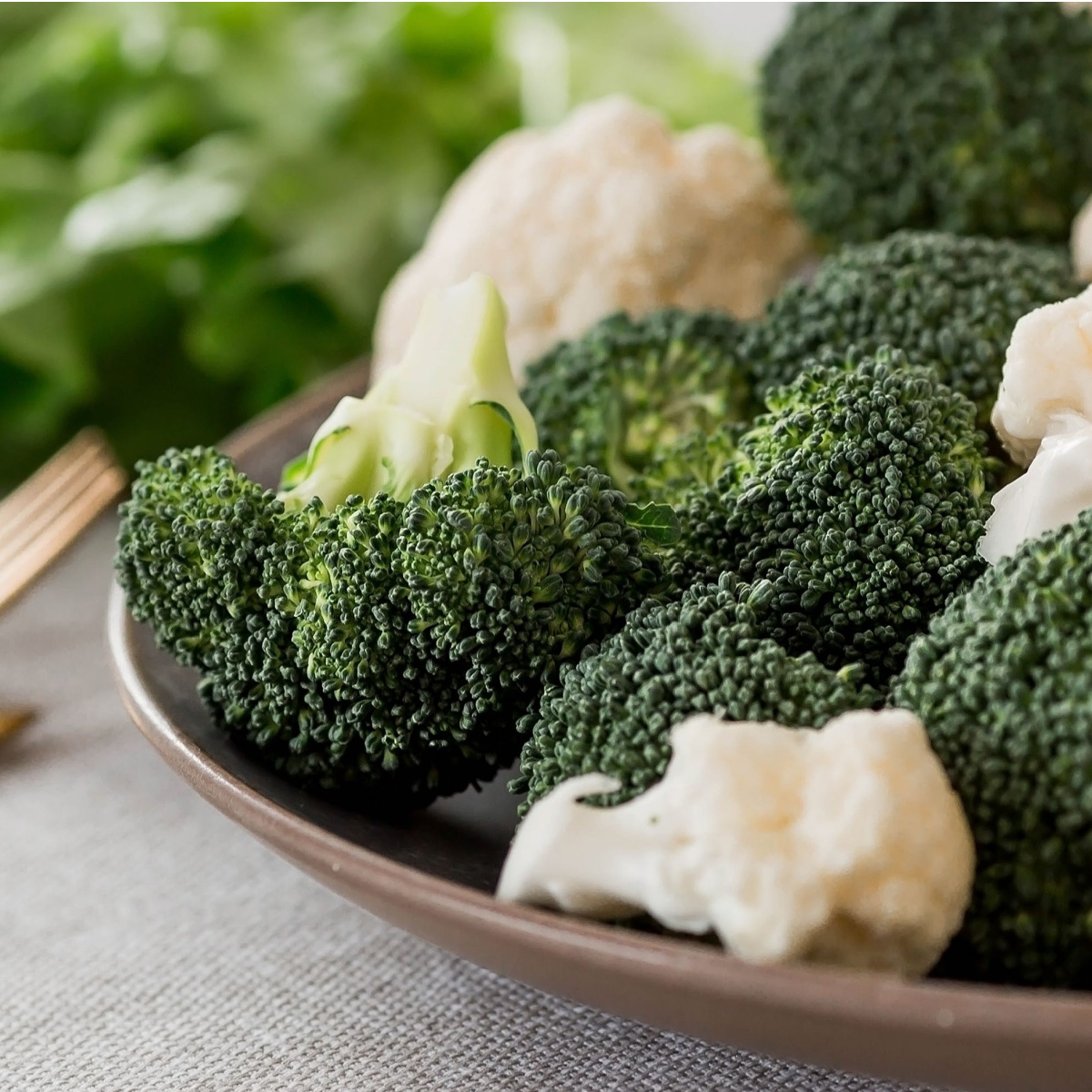
Broccoli & Cauliflower
Broccoli and cauliflower, celebrated for their nutritional content, can, in certain individuals, contribute to stomach bloating and discomfort. These cruciferous vegetables contain FODMAPs (fermentable oligosaccharides, disaccharides, monosaccharides, and polyols), complex carbohydrates that undergo fermentation in the digestive system, producing gas as a byproduct. This gas accumulation can lead to bloating and discomfort, particularly in those with sensitivities or digestive conditions.
"These vegetables contain complex carbohydrates and fiber, particularly raffinose, which can be hard to digest. When they reach the colon, bacteria ferment them, producing gas and leading to bloating," Afzal says.
However, he adds that "there is limited research on this specific topic, but it's a well-known effect observed in many individuals."
Beans & Lentils
Beans and lentils, though recognized for their protein and fiber content, can be culprits of stomach bloating and discomfort for some individuals. These legumes contain oligosaccharides, a type of carbohydrate that the human digestive system may struggle to break down completely.
"Beans and lentils contain high levels of soluble fiber and oligosaccharides, which can lead to increased gas production during digestion. This gas can cause bloating and discomfort," Afzal notes. He further adds that "the gas-producing effects of beans and lentils are widely recognized and have been studied in clinical settings."
Cabbage
Cabbage, a nutritious cruciferous vegetable, can be a source of stomach bloating and discomfort due to its composition. Like other cruciferous vegetables, cabbage contains FODMAPs (fermentable oligosaccharides, disaccharides, monosaccharides, and polyols), complex carbohydrates that may be challenging for some individuals to digest.
"Cabbage is rich in fiber and sulfur compounds. These can contribute to gas production and bloating when the cabbage is digested and fermented by gut bacteria," Afzal says.
He also highlights that "the gas-producing effects of cabbage are well-documented and are part of the broader knowledge of cruciferous vegetable digestion."
Onions
Onions, commonly used to add flavor to various dishes, can be a source of stomach bloating and discomfort for some individuals. This is attributed to their high content of fructans.
"Onions contain fructans, a type of carbohydrate that some people have difficulty digesting. These fructans can ferment in the gut, leading to gas and bloating. Onions, particularly in people with irritable bowel syndrome (IBS) or fructose malabsorption, are known to cause gastrointestinal discomfort," Afzal states.
He concludes by noting that the impact of these vegetables varies among individuals, and not everyone will encounter bloating following their consumption. Cooking or lightly steaming these vegetables can enhance their digestibility, potentially lowering the chances of bloating. An individual's experience with these vegetables can be influenced by factors such as food intolerances, sensitivities, and underlying gastrointestinal conditions.


